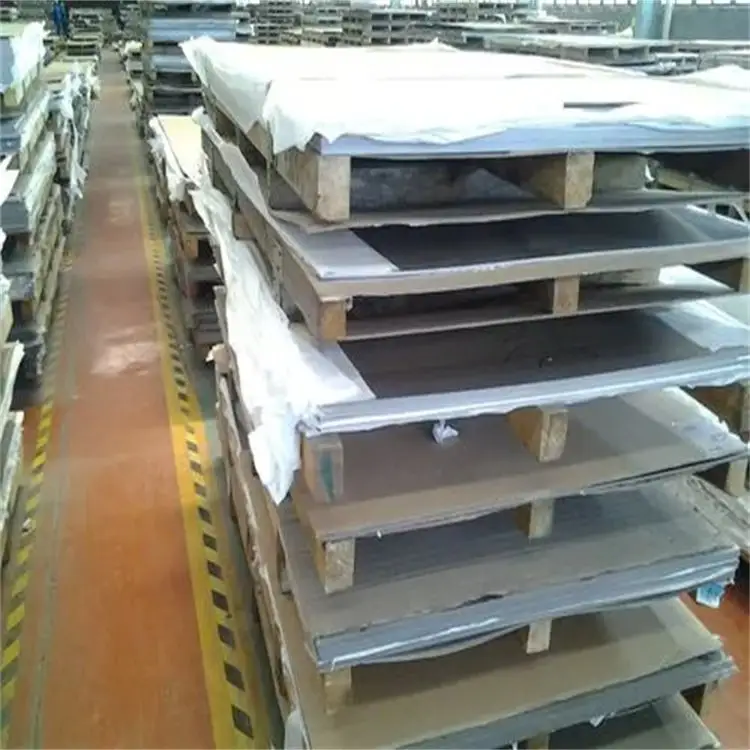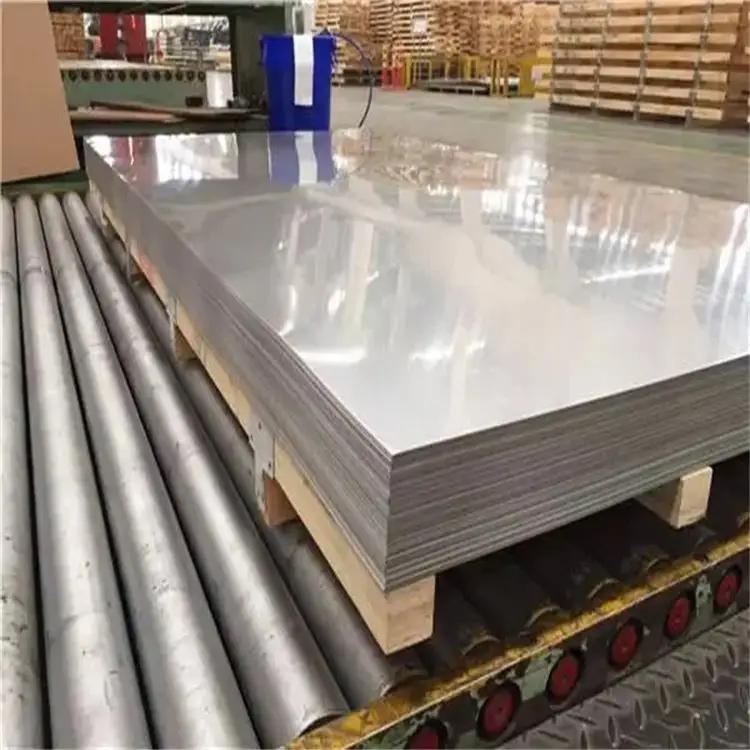Choosing Durable Materials for Outdoor Environments
Outdoor environments demand materials that can withstand fluctuating weather conditions, moisture, and pollution without deteriorating quickly. A SS Sheet is increasingly chosen for such applications due to its exceptional corrosion resistance, structural integrity, and aesthetic appeal. From architectural cladding and railings to outdoor furniture and signage, using a SS Sheet ensures that installations remain durable and visually appealing over time. This article explores the factors affecting corrosion resistance in SS Sheet for outdoor use, including material selection, surface treatments, design considerations, maintenance, and emerging innovations.
Understanding Corrosion Mechanisms in Outdoor Conditions
Environmental Factors Affecting SS Sheet
The performance of a SS Sheet outdoors depends heavily on the surrounding environment. Exposure to rain, humidity, salt-laden air, industrial pollutants, and UV radiation can accelerate corrosion if the wrong grade or finish is used. Coastal areas pose additional challenges due to chloride ions that can penetrate the passive layer of the SS Sheet, potentially causing pitting. Recognizing these environmental factors helps determine the most suitable SS Sheet grade for long-term outdoor performance.
Types of Corrosion Impacting SS Sheet
Different types of corrosion affect SS Sheet in outdoor applications. Pitting corrosion, crevice corrosion, and stress corrosion cracking are common concerns, particularly in marine or industrial environments. Choosing the right alloy and surface finish can minimize these risks. For example, a 316 SS Sheet is more resistant to chloride-induced pitting than a 304 SS Sheet, making it ideal for coastal or heavily polluted locations.

Selecting the Right SS Sheet Grade for Outdoors
Austenitic Stainless Steel for Durability
Austenitic SS Sheet grades such as 304 and 316 are widely used outdoors due to their excellent corrosion resistance and good formability. A 304 SS Sheet performs well in most urban and rural environments, providing resistance to atmospheric corrosion and general wear. However, for environments with high chloride exposure or frequent acid rain, a 316 SS Sheet offers superior protection against localized corrosion.
Duplex and High-Alloy Options
Duplex SS Sheet provides enhanced strength and corrosion resistance compared to standard austenitic grades. This makes duplex SS Sheet suitable for structures that require both mechanical robustness and long-term outdoor durability. High-alloy SS Sheet grades can also be considered for extreme environments, offering specialized resistance to pitting, crevice, and stress corrosion.
Surface Finishes and Their Influence on Corrosion Resistance
Smooth and Polished Finishes
The finish of a SS Sheet significantly impacts its resistance to environmental degradation. Smooth, polished surfaces reduce the potential for water retention and pollutant accumulation, limiting the onset of corrosion. Electropolished SS Sheet finishes create a uniform, smooth surface that enhances the passive layer and further reduces susceptibility to pitting.
Brushed and Decorative Finishes
While brushed or textured SS Sheet finishes provide an appealing look, they may retain moisture and debris, potentially accelerating corrosion in harsh outdoor conditions. Proper cleaning and maintenance are essential to preserve the integrity of a brushed SS Sheet. Choosing decorative finishes should balance aesthetics with practical considerations for long-term corrosion resistance.
Design Considerations for Outdoor SS Sheet Applications
Minimizing Crevices and Traps
Design plays a crucial role in the corrosion performance of a SS Sheet outdoors. Avoiding crevices, ledges, and pockets where water can accumulate helps maintain the protective properties of the SS Sheet. Continuous welds and smooth transitions in SS Sheet assemblies prevent localized corrosion and make surfaces easier to clean.
Structural Design and Load Considerations
Outdoor installations of SS Sheet often bear structural loads. Ensuring the SS Sheet is thick enough to resist deformation while allowing proper drainage of rainwater helps prevent stress concentration and localized corrosion. Properly designed supports and spacers can also prevent galvanic corrosion when the SS Sheet contacts other metals.
Welding and Fabrication for Outdoor SS Sheet
Maintaining Corrosion Resistance During Welding
Welding can compromise the corrosion resistance of SS Sheet if not done properly. Heat-affected zones can lead to sensitization, making areas more prone to corrosion. Using suitable filler metals, controlled heat input, and post-weld cleaning ensures the SS Sheet retains its protective oxide layer.
Finishing Welds for Outdoor Durability
Smooth and polished welds on SS Sheet reduce crevice formation and limit moisture retention. Passivation after welding restores the chromium-rich protective layer, enhancing corrosion resistance. Properly finished SS Sheet welds are essential for long-term outdoor performance.
Protective Treatments and Coatings for Outdoor SS Sheet
Passivation and Surface Enhancement
Passivation treatments on SS Sheet enhance the natural oxide layer, improving corrosion resistance in outdoor environments. Routine maintenance with chemical passivators can extend the life of SS Sheet installations, particularly in areas exposed to pollutants or high humidity.
Protective Coatings for Extreme Environments
In extreme conditions, additional coatings can be applied to SS Sheet for added protection. Transparent polymer coatings or specialized anti-corrosion layers can shield the SS Sheet from UV damage, salt spray, and industrial chemicals, complementing the natural corrosion resistance of the stainless steel.
Maintenance Strategies for Outdoor SS Sheet
Routine Cleaning and Inspection
Regular cleaning of SS Sheet helps remove contaminants that could compromise the passive layer. Water and mild detergents are generally sufficient for urban environments, but coastal or industrial sites may require more frequent and targeted cleaning to maintain corrosion resistance.
Long-Term Preservation Practices
Periodic inspections and prompt repair of scratches or dents on SS Sheet prevent localized corrosion. Re-passivation and polishing restore protective properties, ensuring that outdoor SS Sheet installations remain visually appealing and structurally sound over decades.
Environmental Influences and Regional Considerations
Coastal and Marine Exposures
SS Sheet in marine environments faces high chloride concentrations, which can penetrate the passive layer and lead to pitting. Using 316 or duplex SS Sheet, along with careful design and maintenance, mitigates these risks. Electropolishing further strengthens the surface against chloride-induced corrosion.
Industrial and Urban Environments
Industrial pollutants such as sulfur dioxide, nitrogen oxides, and particulate matter can accelerate corrosion on SS Sheet. Choosing appropriate grades and finishes, combined with routine cleaning, ensures that SS Sheet maintains both aesthetic and structural integrity in urban and industrial settings.
Installation Best Practices for Outdoor SS Sheet
Proper Handling and Storage
During transport and installation, SS Sheet must be protected from contamination and physical damage. Storing sheets off the ground, covered, and away from moisture prevents surface staining and scratches that could compromise corrosion resistance.
Ensuring Proper Drainage and Ventilation
Installation should allow water to drain freely and air to circulate around the SS Sheet surfaces. Adequate drainage prevents prolonged moisture exposure, reducing the risk of localized corrosion and maintaining the durability of the SS Sheet outdoors.
Cost Considerations and Lifecycle Benefits
Initial Investment vs. Longevity
While high-grade SS Sheet may have a higher upfront cost, the extended service life and reduced maintenance can offer better long-term value. Selecting the correct SS Sheet grade, finish, and protective treatment ensures that installations remain functional and visually appealing for decades.
Evaluating Total Cost of Ownership
Total cost of ownership considers procurement, fabrication, installation, maintenance, and eventual replacement. Using a premium SS Sheet reduces maintenance frequency and avoids premature replacement, making it a cost-effective choice for outdoor applications.
Emerging Trends in Outdoor SS Sheet Use
Antimicrobial and Self-Cleaning Coatings
Innovations in SS Sheet coatings include self-cleaning and antimicrobial layers that reduce maintenance needs. While these coatings complement corrosion resistance, they cannot replace proper material selection and routine care for outdoor applications.
Advanced Surface Treatments
Electropolishing, laser surface modification, and nano-coatings enhance SS Sheet performance outdoors. These advanced treatments improve smoothness, reduce surface roughness, and reinforce the passive layer, further extending the life of outdoor SS Sheet installations.
Practical Guidelines for Selecting SS Sheet Outdoors
Key Selection Criteria
Consider environmental exposure, desired lifespan, structural requirements, maintenance capabilities, and aesthetic preferences when selecting SS Sheet for outdoor use. Matching the SS Sheet grade, finish, and protective treatments to these factors ensures optimal performance.
Steps to Ensure Longevity
Specify the correct SS Sheet grade, choose appropriate surface finishes, apply necessary protective treatments, design for drainage and minimal crevices, and implement regular maintenance schedules. This holistic approach maximizes the durability and corrosion resistance of outdoor SS Sheet installations.
FAQ
Which SS Sheet grade is best for coastal outdoor applications
For coastal environments, 316 SS Sheet is preferred due to its superior resistance to chloride-induced corrosion. Duplex SS Sheet can also be considered for structures requiring higher strength and enhanced corrosion protection.
Can SS Sheet withstand industrial pollution without coatings
High-grade SS Sheet with smooth or electropolished finishes can resist many industrial pollutants. However, additional protective coatings may be necessary in highly aggressive environments to maintain long-term corrosion resistance.
How often should outdoor SS Sheet be cleaned and inspected
Urban environments may require cleaning twice a year, while coastal or industrial locations benefit from quarterly cleaning. Visual inspections should accompany each cleaning to detect and address early signs of corrosion.
Is electropolishing essential for all outdoor SS Sheet
Electropolishing is not mandatory but highly recommended in harsh or marine environments. It enhances surface smoothness, strengthens the passive layer, and improves long-term corrosion resistance of the SS Sheet.
Table of Contents
- Choosing Durable Materials for Outdoor Environments
- Understanding Corrosion Mechanisms in Outdoor Conditions
- Selecting the Right SS Sheet Grade for Outdoors
- Surface Finishes and Their Influence on Corrosion Resistance
- Design Considerations for Outdoor SS Sheet Applications
- Welding and Fabrication for Outdoor SS Sheet
- Protective Treatments and Coatings for Outdoor SS Sheet
- Maintenance Strategies for Outdoor SS Sheet
- Environmental Influences and Regional Considerations
- Installation Best Practices for Outdoor SS Sheet
- Cost Considerations and Lifecycle Benefits
- Emerging Trends in Outdoor SS Sheet Use
- Practical Guidelines for Selecting SS Sheet Outdoors
- FAQ


